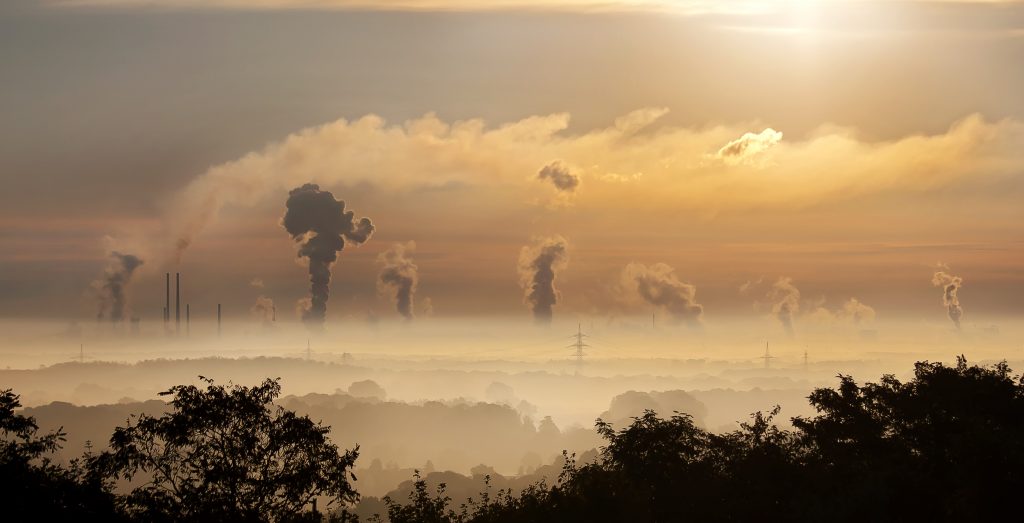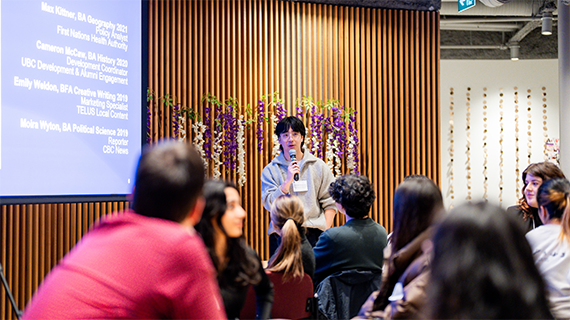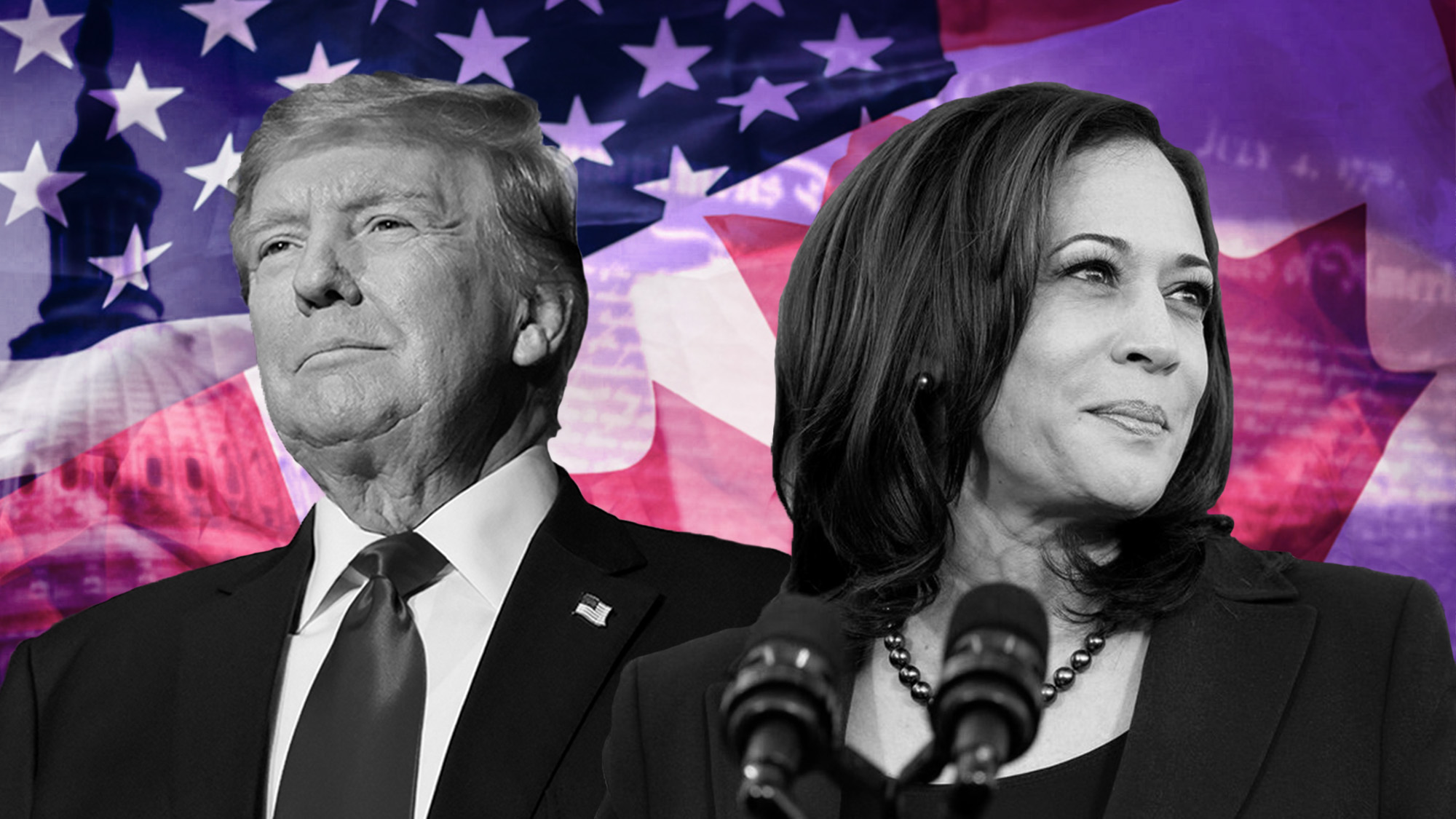A Q&A with climate policy expert, political science professor and Acting Dean of Arts Kathryn Harrison


Kathryn Harrison was partway through a PhD in chemical engineering at MIT, researching new environmental technologies, when she realized the fundamental problem she faced was not lack of innovation, but rather the absence of public policies that incentivize development and adoption of new technologies.
“Fossil fuels are a great deal, unless governments put a price on the pollution that comes from them,” says Harrison. “The world is full of extremely innovative people, they’re so creative and they’re so clever. What they don’t have is an incentive to come up with new technologies; a guarantee from the government that there will be a market for clean energy.”
Harrison, who had experience working as an engineer in the oil industry, made a decision to switch fields and complete a PhD in political science, focusing on environmental policy. She worked as a policy analyst for Environment Canada and the U.S. Congress before joining UBC’s Political Science department. Currently the acting Dean of Arts at UBC, Harrison has authored several books and journal articles on climate politics and frequently publishes op-eds and participates in radio interviews to share her expertise with the public.


“Mr. Trudeau has said we need to build pipelines in order to afford to get ourselves to reduce our greenhouse gas emissions. Which is like me saying, ‘I need to build up my strength to go on a diet by eating a lot of ice cream.’ These things are not consistent and there’s no way to make them consistent.”
We spoke to Professor Harrison about the advice she would give Justin Trudeau, the impact Donald Trump will have on Canadian climate policies and how young people and researchers can contribute to the conversation on environmental policy.
As an expert in environmental policy, what was your reaction to the recent US election?
Discouragement. Not just because Donald Trump was elected to the White House, but because it gave the Republican party majorities in both chambers of Congress, which basically means the US federal government is controlled by a party whose leadership rejects that climate change is caused by human activity. That’s pretty bad. Mr. Trump has talked about pulling the U.S. out of the Paris Agreement, expanding coal production and getting rid of Clean Power Plan regulations. It really does seem to be the beginning of a period of rollback.
What impact will Trump’s presidency have on Canada’s climate policies?
It’s much easier for Canada to do things to mitigate climate change if the U.S. is matching actions, because the Canadian and U.S. economies are so tightly integrated. We now know that’s not going to be the case. If we impose a higher carbon price than the U.S., there will be pushback from the business community and some provinces who are concerned about competitiveness impacts. It will be a real challenge on the regulation of motor vehicles – which make up almost 30% of Canada’s greenhouse gas emissions – because the North American motor vehicle market is so integrated.
Prime Minister Trudeau and the Environment Minister Catherine McKenna have been very clear they’re forging ahead with their Paris Agreement targets and that Canada is still committed to a carbon price increasing to $50 by 2022, but we’ve made and broken those promises before. In 2001, after George W. Bush’s election, the U.S. withdrew from the Kyoto protocol and Prime Minister Chretien announced we were forging ahead with ratification of Kyoto. But then Canada did nothing. We’re in a similar situation now. My worry is the potential for unraveling of that political resolve over time. We have a long history of not following through on our promises particularly when there has been a risk of divergence from the United States.
What is your assessment of Justin Trudeau’s climate actions so far?
There are two Trudeau governments when it comes to fossil fuels. On one hand, they’re promising to do many things to reduce Canada’s emissions. They’ve released a long-term strategy to phase out reliance on fossil fuels, they’ve proposed a new low carbon fuel standard and have committed to hastening the phase out of coal for electricity. They have also been a much more engaged and supportive player in international negotiations. Canada was part of the “coalition of ambition” that pushed through the Paris Agreement and has committed to doing its part to limit the global temperature rise to two degrees C.
At the same time, the Trudeau government has just approved two pipelines that are projected to operate for 35 years. So on the one hand, we’re talking about reducing emissions, on the other hand we’re building pipelines that will significantly increase emissions. And not just increases in the short term, but building infrastructure that’s expected to operate for decades. Increasing our production of bitumen for export could yield another 30-35 million tons per year of emissions and the Pacific Northwest LNG plant would easily be another 10 million tons per year.
When Canada signed the Paris Agreement last year, they pledged to cut Canada’s greenhouse gas emissions to 30% below the 2005 levels by 2030. Do you think it’s still possible for Canada to meet those commitments?
I think the only way Canada could achieve its Paris targets is to rely extremely heavily on the purchase of international reduction credits. That’s problematic in a few ways. One is if we’re paying others to make reductions, we’re not weaning our economy off fossil fuels. Secondly, the question with international offsets is always, are the offsets real? Is someone doing more than they would have otherwise? The Paris Agreement consists of short-term commitments made and revisited every 5 years. If you’re paying someone to reduce their emissions, what they can do is simply offer a less ambitious commitment the next time around and in reality nothing is really happening. And if it was a real offset, what we would in effect be doing is paying other countries to stop buying our fossil fuels and to put us out of business. That is not a sensible or sustainable strategy.
The business case Kinder Morgan put forward to the National Energy Board for the Trans Mountain expansion project is predicated on a “business as usual” world. It’s an economic bet on the expansion rather than the decline of fossil fuel use. It doesn’t take into account the commitments under the Paris Agreement, it doesn’t take into account Canada’s own regulation, it doesn’t take into account that the price of oil is low. It assumes this world of growing fossil fuels. So, either that happens, and it’s a good economic bet in the short term, but we undermine our Paris Agreement, or, it’s a bad economic bet.
What would your advice to Justin Trudeau be?
If we want to transition the world away from fossil fuels, you have to reduce reliance on fossil fuels. That’s not the same thing as saying we should shut down Canada’s oil industry, but by doubling down on production of fossil fuels as a source of economic growth and job creation in Canada, we are investing in going in the other direction.
My advice would be that there are ways to design climate policies that are less harmful to competitiveness. One of them is to have revenue-neutral carbon pricing; you take money from a carbon tax and cut money from income tax. Another is to look carefully at claims of economic hindrance. Because everyone says their competitiveness has been harmed, but it may be totally unrelated to the carbon price. We can phase out coal-fired electricity because that’s not a trade-exposed sector. We can improve building codes, because Canadians aren’t going to build their houses in North Dakota and commute. They’re going to live here, they’re going to work here.
Having evidence-based policymaking will be particularly important. When British Columbia introduced a $30 carbon price, many claimed the B.C. economy would be decimated. But economists who examined competitiveness impacts found very little evidence. If there is evidence, there are ways to cushion those impacts short of just waiving the tax.
What contributions can academics make to this issue?
Many researchers in the Faculty of Arts are studying climate change from many angles. We know human activity is causing climate change, but there is still lots of important work being done on how severe it is, how quickly it’s happening and its impacts on particular species. Simon Donner in Geography studies the impact of climate change on coral reefs. David Tindall in Sociology studies environmental movements. Jiaying Zhao studies the psychology of sustainability and how behavioural interventions can encourage pro-environmental actions.
Research on international negotiation will be particularly important if the U.S. withdraws from the Paris Accord. How could other countries that are party to the Paris Agreement lock arms and proceed? We’ve heard some European politicians calling for a carbon tariff against U.S. imports. That would be a tricky business for Canada, because if we get into a trade war with the U.S. we’re likely to lose. But I suspect many legal scholars around the world have probably pulled out the scholarship and started looking at options.
What would you say to students who are feeling disheartened by climate change politics in Canada and the recent U.S. election?
This is a hard one because I’m very discouraged right now. I have children who are both climate activists. They started a group in high school called “Kids for Climate Action”, they were both leaders of divestment movements at their universities, they’re both involved in environmental movements in B.C. – it’s pretty close to home.
I think young people get it more than anyone, partly because this is something they’ve studied in school their whole lives, partly because young people tend to be more aware of social justice issues and the injustice of this issue. Once you get a house and kids and a mortgage you’re just trying to get through every day and you forget about the big questions. Young people have an ability to speak with moral clarity on this issue, simply because, it’s your generation whose future is at stake.
One of the things that has been most encouraging in the last few years, has been the mobilization of students on university campuses throughout the world on the issue of climate change. In my experience, politicians are reluctant to take action on climate change because they don’t believe the things that need to be done will actually be supported by voters. I think students are well positioned to maintain pressure on the federal government to fulfill its obligations and to be transparent. Mr. Trudeau got elected as this youthful prime minister doing things in a new way and calling for young people’s support. Well, the price of young people’s support I would think is to fulfill their promises on climate change.
It’s a really hard policy issue because the benefits are long term and the costs are short term. Because we require collective action on a global scale and because there is scientific uncertainty not about what causes climate change, but about what exactly the impacts will be in which area and when. And because there are winners and losers. The horrible irony is that the countries that stand to lose the most from climate change are those that haven’t caused the problem. The flip side of that is the countries that have caused the problem can afford to do something about it. And that’s us. We just haven’t done our share at all in the last 25 years.
Related:
Sociology professor discusses Canada’s role on climate change after COP 21
Kathryn Harrison, “Pipelines are not a reconciliation of Canada’s environment and economy,” Globe and Mail, November 30, 2016


